Once Faith Kabiru had heard the message of biblical equality, she wanted to share it with others. Because of her, and others who are eager to train others, we recently conducted a very successful New Man, New Woman, New Life at East African Christian College in Rwanda. A report from Africa Program Director Frank Michael Tweheyo follows.
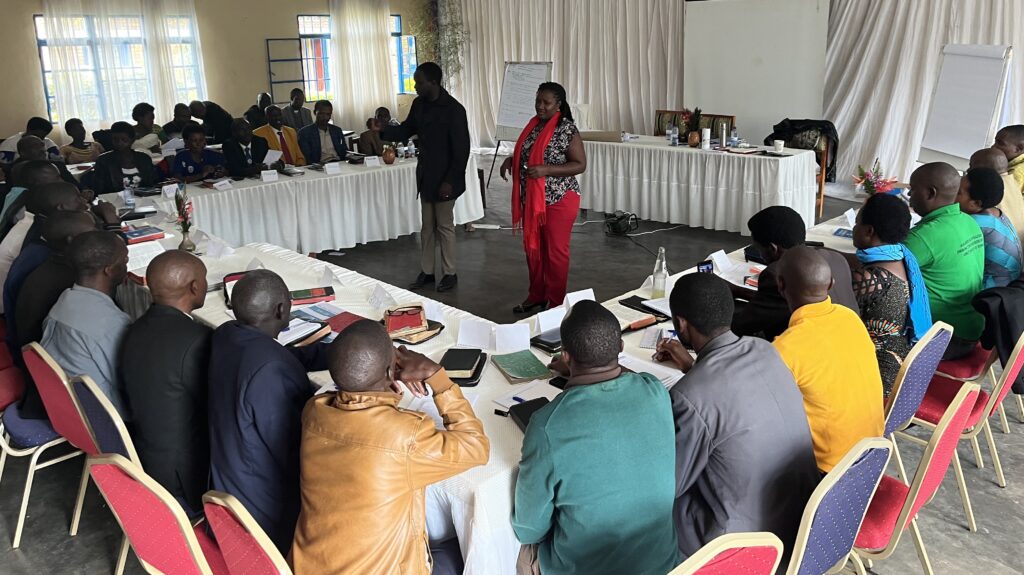
Faith, a Strategic Management Specialist, had been part of our “Training of Trainers” (T.O.T) at St. Paul’s University in Limuru, Kenya. She knew that the Empower training could potentially change the lives of men and women who live with heavy burdens caused by cultural misunderstandings of the Bible that lead to violence and chaos within families.
Faith met first with then Quality Assurance Director at East African Christian College (EACC) in Kigali, Rwanda, about our NMNWNL programs. Judith Tinimwebwa, now Academic Registrar at EACC, contacted Frank and then met with Empower President Carrie Miles during her visit to Kigali in September. A few weeks later, Frank returned and lead a “vision cast” for our trainings.
Last month, a team including Frank, Faith and Elizabeth Ndabi (who together with Dr. Zablon Bundi and now Dr. Njau James have been hosting Empower at St. Paul’s University), joined Frank for the first NMNWNL seminar at EACC.
The training transformed the thinking and practice of many, who will in turn share what they have learned with those they lead. The training drew about 43 participants, consisting of deans and heads of departments, faculty, clergy and lay-leaders drawn from different churches in the nearby communities.
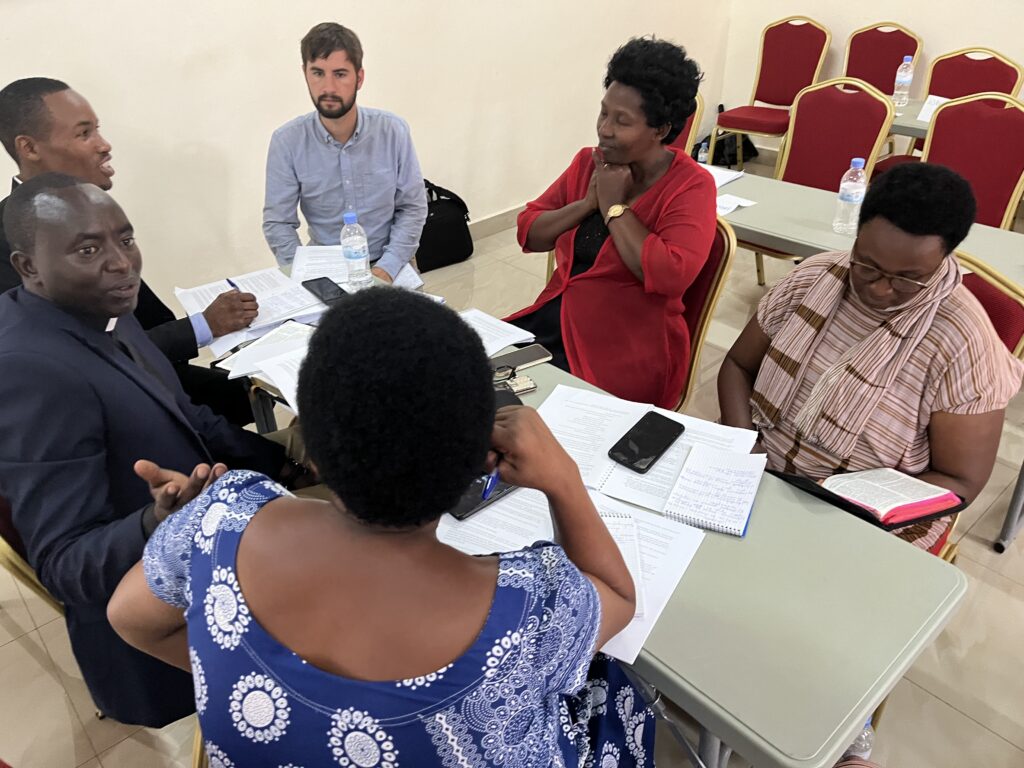
Rev. Emmanuel Mugiraneza, the Dean of the Faculty of Theology, gave opening remarks at the training.
He had attended our “vision cast” during Frank’s visit in December. He testified that after the vision cast, energized by the knowledge that woman and man were not cursed, he went and helped 30 couples in the South of Rwanda. Since he now had a better understanding of God’s original purpose for man and woman, he was able to help them better understand the difference between culture and God’s intention for marriage and family. He was optimistic that all participants would go back home changed, energized and transformed.
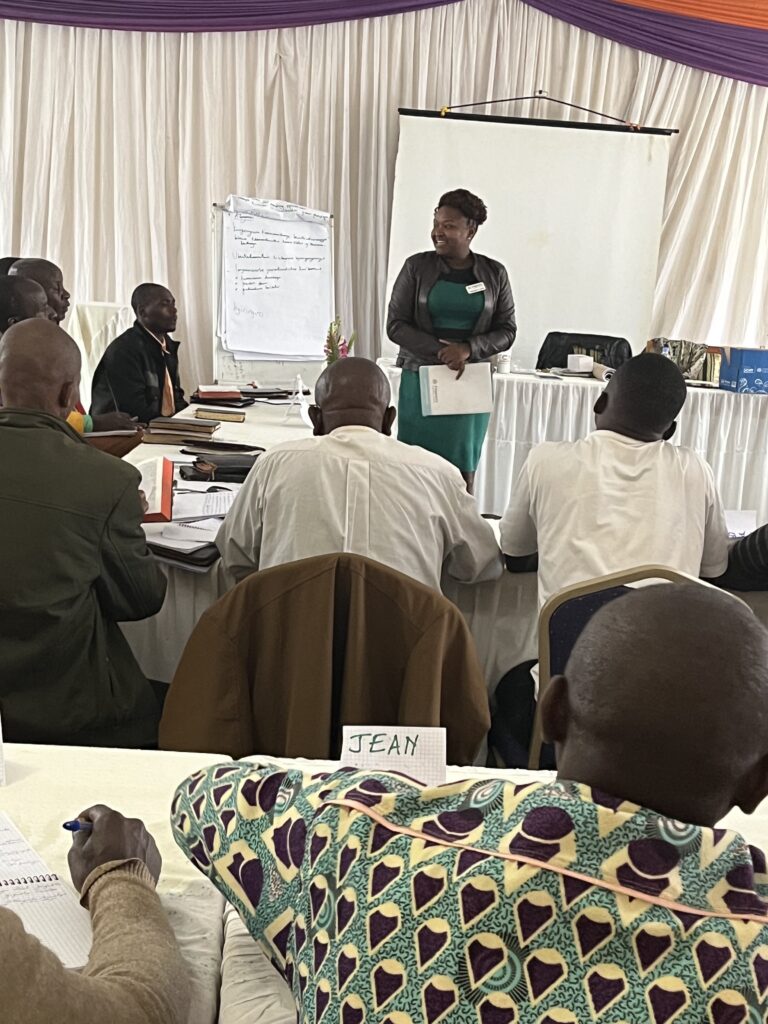
Frank, Faith and Elizabeth went on to Byumba, a Rwandan town close to the borders with Uganda and Congo, where they presented NMNWNL for clergy and Mother’s Union leaders under Bishop Emmanuel.
Gender Chaos
The cultural context and social norms in this area make equal marriage a challenge.
Participants shared that one of the “burdens on men” is that men have “lost teeth” because of “the present gender chaos” where secular feminism has taken the day. They came looking for the balance the Word of God may bring.
Men also shared that they feel threatened, because women have so much encroached on what was traditionally considered man’s territory and property rights, and they believe there is “girl-child empowerment over the boy child, and employment disequilibrium.” (Rwanda is among the first countries on the list of those whose Parliament and The Executive have more women than men in the whole world).
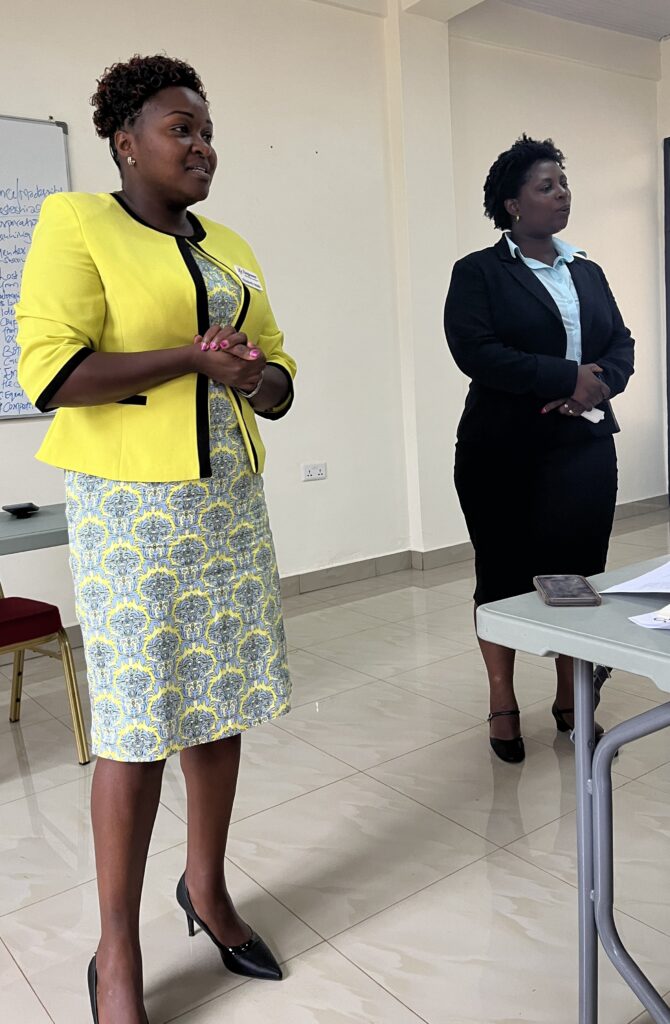
The women, for their part, find themselves in a strange situation. Byumba is rural and so old ways still persist. In their culture, women have no right to ask for sex because they would be branded prostitutes. Because of the expectations around bride price, and the cultural-biblical understanding that God said ..”and he will rule over you…,” women have no say about sex within their marriage. They are just sex objects and they just participate in sex as a responsibility, an obligation, but not for enjoyment and pleasure. (When one woman raised the issue, others clapped and became very enthusiastic in agreement).
As such, wives almost never get satisfied in bed. They must learn to live with that burden because they accept it as one of God’s “curses” on them.
Some women choose to go and look for what is called “abapfubuzi” in their language, Kinyarwanda. The word refers to men who are known in the community who help fulfill the desires of those unsatisfied women. That Kinyarwanda word has a connotation of re-cooking of half-cooked food to make it ready for eating. When these women are left “half-cooked,” they look for these experts to help them get satisfied or else learn to live with their dissatisfaction.
The other burden is what is called “Guteera Amashiga,” which means that a woman is beaten on her wedding day, a physical reminder that she is in total submission to the husband. She should never speak to the man with a raised voice. They are not equals. If the groom does not beat the wife, he is rebuked by elders and everyone will know that he will end up being subjugated by the wife (or that he was bewitched during courtship).
As we dug through Scripture together, participants came to learn that this cultural norm is a consequence of the fall but not a “redemption attitude.” The creation Ideal and Redemption (Jesus and Paul) teach mutuality not hierarchy.
The participants were so thrilled to learn about submission in the context of redemption and were determined to go back home and practice it, not as culture dictates it, but as the Bible (Paul) beautifully brings it out!
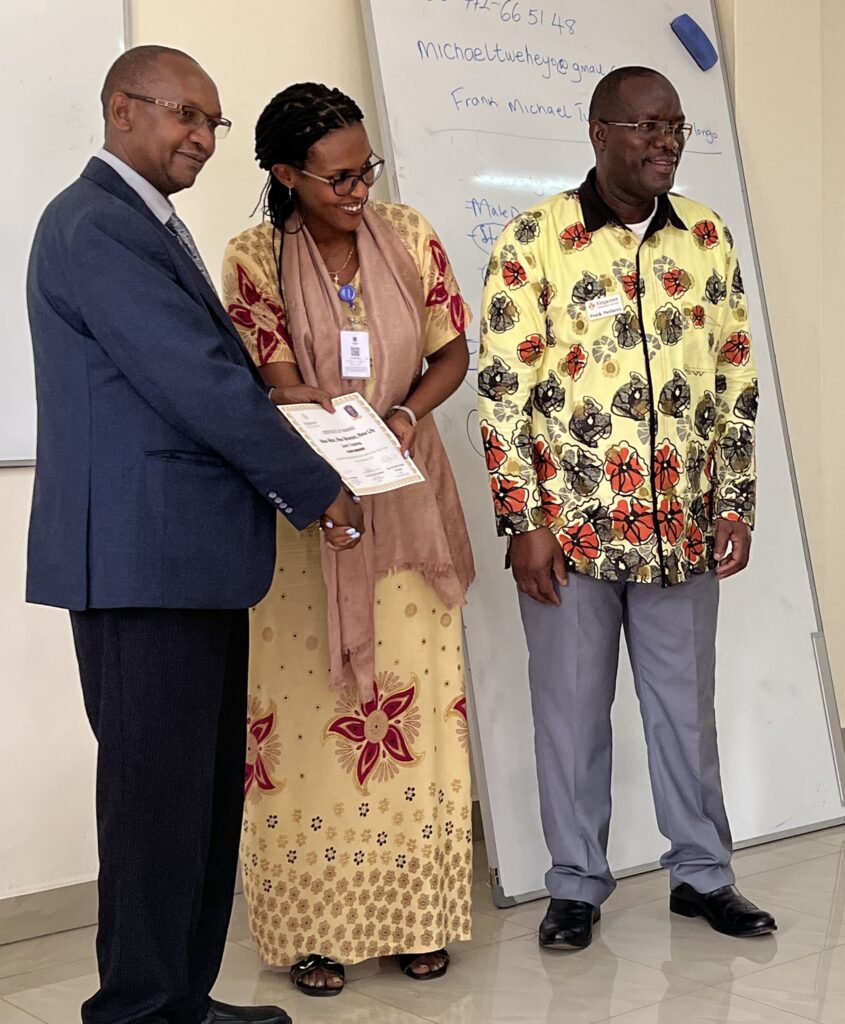
A new way to understand Scripture
After studying the Creation material, there was an excited and heated discussion about the impact of the knowledge of ha’adam, ’ezer kenegdo (as opposed to woman being a subordinate helper) and that naked and unashamed relationships are what God intended from the beginning.
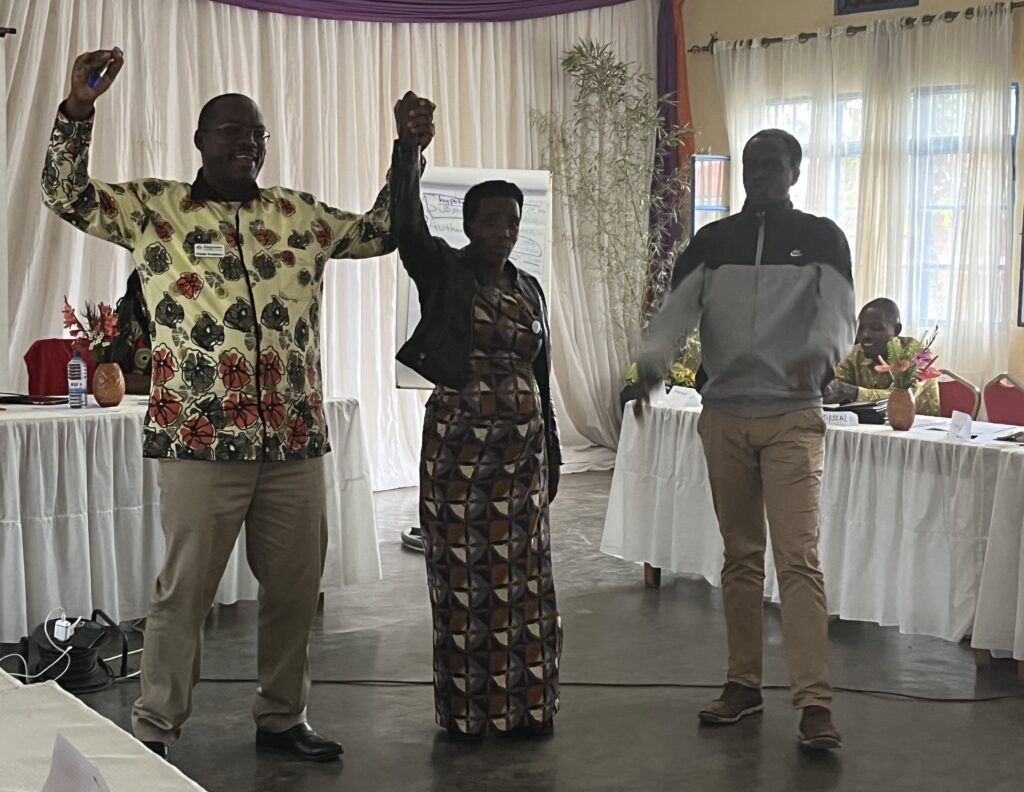
One participant asked: ” Does Genesis now become a point of debate, or a point of reflection?”
The participants came to see that when people read the Bible without scrutinizing phrases and words, they end up missing the whole message. For theologians, clergymen and women who had been preaching and studying but not understanding Genesis, the training provided a strong challenge for them to go back and teach a balanced message of Creation.
The “Fall” brought even more debate as almost everyone believed that man and woman were cursed alongside the serpent and the ground. Reading and understanding for the first time that man and woman were not cursed, changed the whole debate of the seminar. One clergyman decided to invite his wife and repented for being so harsh to her, as taught by culture but opposing the Bible. They went back home a happier couple!
This was a thrilling training, because at every turn, the class would turn into a choir and begin singing and dancing. One of the songs that they began to sing with new understanding is “Twarabatuwe Rwose Rwose” which, translated means: “Truly, Truly we were Redeemed in Jesus Christ. We teach the Word of Truth in the power of the Holy Spirit. Let’s defeat all that come against us, put on battle gear and go fight the enemy.”
The song gave a synopsis of what the studies were about, encouraged to go and fight the cultural vices that are against the truth of the Word of God. They were ready to go and be a New Man, a New Woman and to live a New Life!
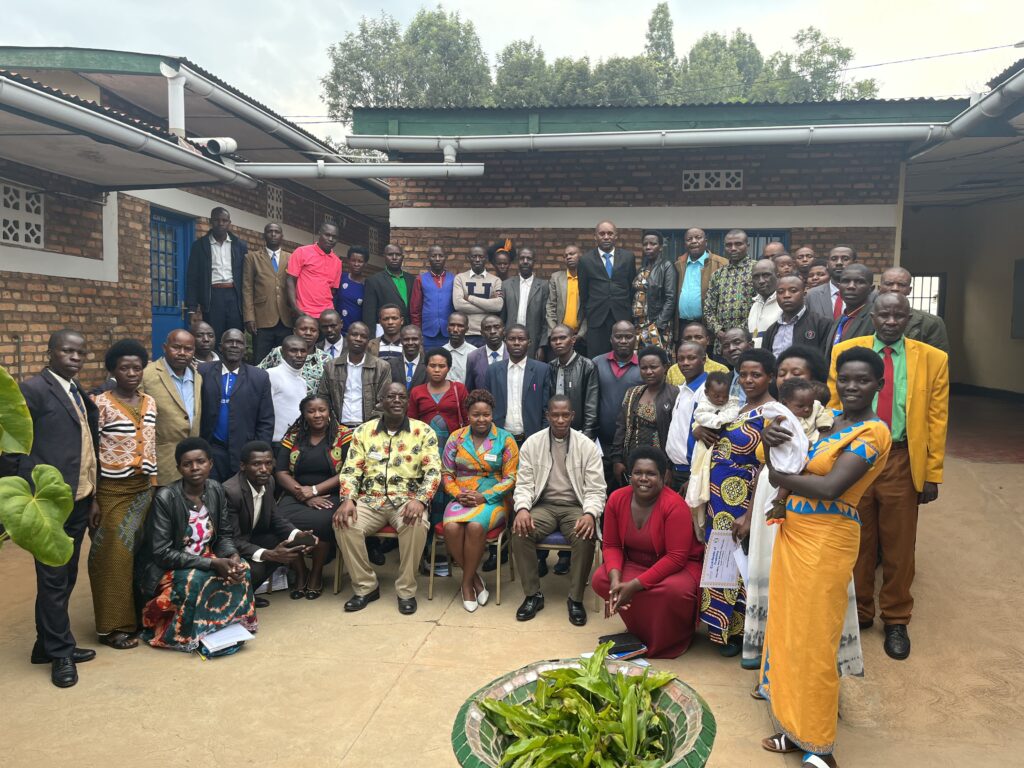
(Part Two of Frank’s report will be posted later this week)
